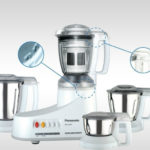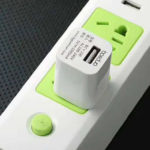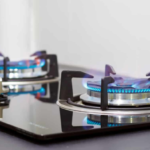Should You Unplug Your Microwave After Use? An In-Depth Look
Microwaves are a common household appliance, used frequently to heat, defrost, or cook food. However, many people are unsure about how to use them efficiently and safely, while also maintaining the appliance’s longevity and saving on energy costs. So, should you unplug your microwave after each use? The answer depends on various factors relating to safety, energy conservation, and appliance durability.
Safety First
Should you unplug your microwave to ensure safety? The short answer is yes. Unplugging your microwave after use is an important safety precaution. Doing so can help prevent accidents such as fires, electrical shorts, or other technical issues. This is especially important if you’re not at home, as unplugging the appliance reduces the risk of a fire starting and going unnoticed.
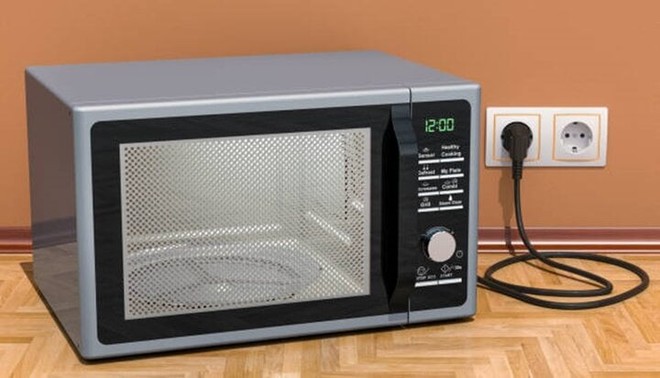
Fire safety starts with unplugging appliances when not in use. (Image source: iStock)
Unplugging your microwave is a crucial safety measure, especially if you have young children at home. Kids are naturally curious and love to explore electronic devices. If the microwave is left plugged in, a child could accidentally press the control buttons and activate the appliance, leading to potential burns or other accidents.
Save Energy, Save Money
Another reason to unplug your microwave after use is to avoid wasting energy. Even when turned off, a plugged-in microwave continues to draw a small amount of power to maintain standby mode. While this power draw isn’t significant, it can add up over time and contribute to higher utility bills. With the ever-increasing cost of electricity, energy conservation has become a priority for many households.
Research shows that the power consumed in standby mode can account for 5-10% of a household’s total electricity consumption. Therefore, unplugging appliances like microwaves when not in use can lead to substantial savings on your energy bills over the long term.
Prolonging Appliance Lifespan
Yet another reason to unplug your microwave after use is to protect its lifespan. When a microwave is constantly plugged in, its internal components can be affected by power fluctuations or other electrical issues. Certain parts, such as the interior light, may turn on if the door is not properly closed, leading to unnecessary wear and tear.
Unplugging the appliance after use allows it to “rest” and reduces stress on the internal components, ultimately extending its lifespan. However, it’s important to unplug with care to avoid causing wear and tear on the plug and wall socket.
In Summary
So, the answer to the question, “Should you unplug your microwave after use?” is yes. If energy savings and frequent usage are not a concern for you, and there are no unusual signs, you may choose to keep your microwave plugged in. However, ensure that it is placed in a safe location and maintained with regular servicing.
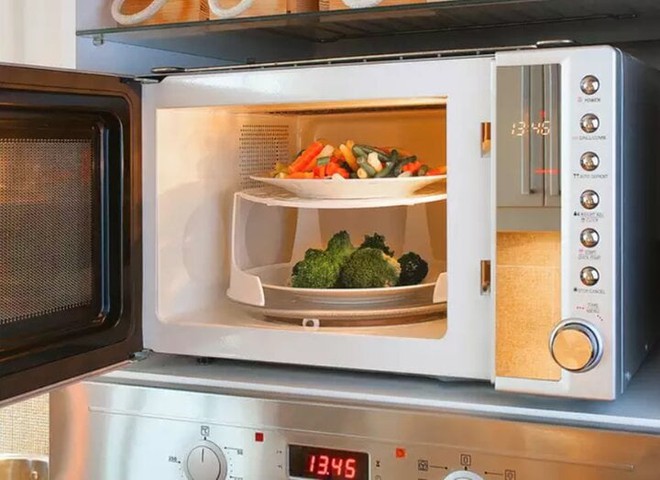
Microwaves are a common fixture in modern kitchens. (Image source: Timesofindia)
Tips for Safe and Efficient Microwave Use
Here are some additional tips to ensure safe and efficient use of your microwave:
– Don’t open the microwave door while it’s in use: Opening the door during operation not only causes heat loss but can also be dangerous due to escaping microwave radiation. It also reduces cooking efficiency and increases energy consumption.
– Use the right microwave power level: Choose a microwave with a capacity and power level suitable for your needs to save on both purchase and running costs.
– Place your microwave in a well-ventilated area: Ensure your microwave is positioned away from flammable materials and sources of heat.
– Never heat food in sealed containers: Food in sealed containers, especially plastic ones, can melt and cause harm if heated in the microwave.
– Avoid overloading the microwave: Putting too much food in the microwave can cause the turntable to become overloaded and hit the sides of the oven, leading to potential fires and explosions.
– Maintain a safe distance: Microwaves emit heat and high levels of radiation when in use, so it’s important to stay a safe distance away.
– Arrange food efficiently: For even cooking and energy savings, place food that takes longer to cook towards the outside of the turntable and smaller items towards the center in a circular arrangement.
Explore 12 Amazing Destinations for Biking Trips
Unlock Vietnam in a brand new way with an exciting biking tour! Discover the stunning beauty of the country with Dien May XANH’s top 12 must-see destinations. From sweeping plains to clear blue beaches and mountainous vistas – experience all the sights with your own personal cycling tour. Find your ideal route and set out for an adventure today!



























